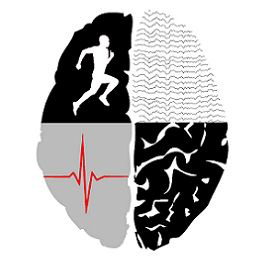About
The primary focus of the Exercise Psychophysiology Laboratory is on the role of exercise in promoting physiological, neurocognitive, and psychological resilience. The lab uses advanced psychophysiological techniques including impedance cardiography and electroencephalography to better understand acute and chronic adaptations to exercise, and how knowledge of these adaptations can be applied to intervention development. This work is helping to elucidate mechanisms underlying the effects of exercise on mental health states (e.g., anxiety and depression). A secondary focus is on correlates of youth and adult physical activity behaviors.


Active Research Projects
- Exercise and Cognitive Function Depression affects about 9.5 percent of the U.S. population annually and is a high cost to society. The proposed intervention, based on human and animal laboratory research, uses aerobic exercise as a treatment for individuals suffering from depression. The aim of this project is to establish the efficacy of an 8-week exercise intervention in improving fitness and cognitive control while ameliorating depression. These findings may add significantly to the current understanding of behavioral interventions for the treatment of depression. This intervention can be self-administered and may also result in additional health benefits (e.g., enhanced mood and neurocognitive changes) and could be widely disseminated to the public.
- MAP Training stands for “mental” and “physical” training. This training program was inspired by laboratory studies on hippocampal neurogenesis conducted by Dr. Tracey Shors and others. It is well established that aerobic exercise produces more new neurons and effortful learning keeps many of the cells alive in the hippocampal formation in animal models. We hypothesize that the combination of these two activities could be useful in improving brain health and psychological functioning in humans. We have loosely adopted meditation as an effortful mental training program along with aerobic exercise. Currently, we are investigating the effects of MAP Training in women.
- Physical Activity and Work Performance This study focuses on the relationship between physical activity and cognitive function while completing workplace activities at a treadmill desk. The total time commitment for the study involves 3 visits, each lasting approximately 60-70 minutes each. During the first session, participants will complete a series of questionnaires and tasks, while becoming familiar with using the treadmill desk. At the end of session 1, participants will also complete a fitness test. During the second and third sessions, participants will either walk or sit at the treadmill desk, while performing various workplace tasks. Participants will be compensated up to $40 for their time and participation.
Recent Publications
- Brush, C. J., Ehmann, P. J., Hajcak, G., Selby, E. A., and Alderman, B. L. (2018, in press). Using multilevel modeling to examine blunted neural responses to reward in major depression. Biological Psychiatry: Cognitive Neuroscience and Neuroimaging.
- Olson, R.L., Brush, C.J., Ehmann, P.J., Buckman, J.F., and Alderman, B.L. (2018, in press). A history of sport-related concussion is associated with sustained deficits in conflict and error monitoring. International Journal of Psychophysiology.
- Brush, C. J., Ehmann, P. J., Olson, R. L., Bixby, W. R., and Alderman, B. L. (2018, in press). Do sport-related concussions result in long-term cognitive impairment? A review of event-related potential research. International Journal of Psychophysiology.
- Liu, J. H., Alderman, B. L., Song, T. F., Chen, F. T., Hung, T. M., Chang, Y. K. (2017, in press). A randomized controlled trial of coordination exercise on cognitive function in obese adolescents. Psychology of Sport and Exercise.
- Rieder, R., Wisniewski, P. J., Alderman, B. L., & Campbell, S. C. (2017, in press). Microbes and mental health: A review. Brain, Behavior, and Immunity.
- Olson, R. L., Brush, C. J., Ehmann, P. J., & Alderman, B. L. (2017). A randomized trial of aerobic exercise on cognitive control in major depression. Clinical Neurophysiology, 128(6), 903-913.
- Ehmann, P. J., Brush, C. J., Olson, R. L., Bhatt, S. N., Banu, A. H., & Alderman, B. L. (2017). Active workstations do not impair executive function in young and middle-age adults. Medicine & Science in Sports & Exercise, 49(5), 965-974.
- Shors, T. J., Millon, E. M., Chang, H. Y. M., Olson, R. L., & Alderman, B. L. (2017). Do sex differences in rumination explain sex differences in depression? Journal of Neuroscience Research, 95(1-2), 711-718.
- Chang, Y. K., Alderman, B. L., Chu, C. H., Wang, C. C., Song, T. F., & Chen, F. T. (2017). Acute exercise has a general facilitative effect on cognitive function: A combined ERP temporal dynamics and BDNF study. Psychophysiology, 54, 289-300.
Personnel
Core Faculty:
Brandon L. Alderman, Ph.D., Director
Doctoral Students:
Anthony Bocchine
Christopher J. Brush
Peter Ehmann
Research Assistants:
Ebony Gilchrist
Jess Cook
Matt Gooden
Matt Jacoby
Mauli Chothani
Melissa Waldron
Nick Dugan
Seungkyu Park